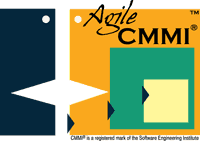WARNING: This is rather lengthy since it’s been a while.
Data
Well, what are friends for if not to remind you of your commitments. I guess that’s the biggest reason I “put it out there” that I was going after “high-maturity” health. And, it’s been a while since I last updated about my progress. Some might think it’s to avoid the subject, others might think I’m not sticking with it so I’m not updating. However, the truth is none of the above. I have been sticking with it, and, I have continued to make steady progress, and, I am thrilled with the results!
What’s especially thrilling about the results are about the high-maturity behavior I’m able to notice and use without nearly as much data and statistics as I expected!
This explains why I have not been updating. The data is BORING!
I’ve already learned so much that I’m able to use and apply that not only would reporting the data be boring but taking the data is boring and isn’t giving me anything to work with that I don’t already have!
I already have my “process models”, and, I already can use them to create anticipated process behaviors!
What’s more, is that I don’t need to keep taking the data to keep using the processes as they are. I only need to start taking new data when I decide to change the models or change the inputs to the models.
This realization came a few weeks after a conversation with my good friend and mentor, Judah Mogilensky. Thanks to Judah, I now have a deeper appreciation for what it is I’m doing compared to what it is I *thought* I was doing: He reminded me of the distinction between physical science data vs. social science data. And, what I’d started out doing believing it was a physical science project is turning out to be much more of social science project — with much greater benefits in the social science domain more than in the physical science domain. Sure, what I’m learning on the physical science side is interesting, but it’s a reflection of the social science side and it’s on the social science side that I’ll actually use it!
AWARENESS
AWARENESS
AWARENESS
AWARENESS
AWARENESS
AWARENESS
!!!!!!!!!
Awareness is what I’m getting from all these measures. Not statistics. And, what I’ve done is to gain the awareness I’ll need to carry on for a lifetime. When I first spoke to Judah about this I thought I was nowhere near done gathering the data and getting to the point where I’m even close to being as aware of the health attributes as I would like to be. At the time, I was seeing real progress and I thought I’d be sticking close by the data-gathering in a rather obsessive way. I was even engaging in some psychological self-warfare to keep going forward to get to the point where my level of awareness lets me operate without having to capture and process data in order to know with a fairly consistent level of certainty that I’m where I want to be.
I thought I would need to keep gathering data, and to continuously look at them and use them to guide decisions, and to use statistics to understand the behavior that the data mirrors. I thought, at the time, that I’d need to work even harder to relate the data to awareness of what’s going on with me.
A few weeks later, I found myself already at that point!
Before becoming cognizant that it’s awareness I’m gaining, I was a little too focused on what data did to data (i.e., calories in/out does to weight/size) as opposed to what the data tells me about ME! It’s not my weight in a vacuum; it’s not my size in a vacuum; it’s not what I eat in a vacuum. It’s how I should operate and live my life that I’m trying to figure out.
Diet
A few times in the last several months, just when I was steeling myself for a disappointing encounter with the scale, lo and behold, I’ve lost weight! Much less gained it!! Why would I expect to be disappointed? Sometimes I feel like I’m carrying around a lot of un-ejected payload. More than a few times I’ve exceeded my 2000 calorie allocation by at least 400 calories. Who *wouldn’t* expect to see a rise in overall weight? Extra baggage AND extra calories? BUT NO! I’ve still lost weight. Talk about motivation!!
A few times of this sort of scenario playing-out and I’ve become a believer. I’m now able to be careful on a daily basis, take stock of my weekly intake, make appropriate decisions based on what has already gone in/out and what I expect will be coming in/out and I’m able to stay on track. I’m actually finding myself entirely enjoying food and not missing it when I choose to forego something that won’t fit my needs for the day. I’ll often seek out small portions of nuts and low/zero calorie beverages before diving into an indulgence to make sure I’m more conscious of what I’m eating. I’m finding my plate often still not fully cleared and so I’m also taking smaller portions. I’m enjoying very healthy meals with lots of fiber and nutrients and not a lot of calories or sugars. Best of all, I don’t need to track it all any more and I’m still aware of it.
Sugar
I read that plain old “sugar” can be a leading contributor to blood glucose irrespective of total calories and other carbs. OK. *THAT* was obvious. But what I mean is that irrespective of total calories, if simple sugars are too many of those calories, blood glucose will go up and pounds will stay on until the glucose levels drop off.
In my reading, I learned that average Americans get nearly 5 times the ordinary sugars (processed or otherwise) they ought to consume in a day. I’m very glad I’ve been tracking my sugar intake whenever I could capture it. A very cursory review indicates that I’ve been averaging 2-4 times the recommended weight-loss sugar volume of 15g/day. It will be interesting to study the correlation between sugar intake and weight loss. Especially now that I’ve decided to make another change in my diet-tracking. I’ll be making a concerted effort to avoid refined sugar. That is, anything on labels that will show up under the carb listing broken-out as “sugars”.
This will “hurt” the most when it comes to my love of energy/nutrition bars.
I have four favorites:
- Go Lean Crunch!
- Cliff Bars
- Zone Perfect and
- Full bar
With dismay I realized that one of them has more sugar by itself than what most of us should get in a day; two of them have about as much as a single day’s allotment, and the last is at least half the daily total.
What this will mean in the beginning is that I’ll be reserving the use of these strictly to three conditions:
1a. Before or immediately after a work-out, and
1b. As an energy boost in anticipation of heavy physical activity
2. As a meal supplement or replacement.
What I’ve allowed myself to do until now is to also feast on a bar as though it’s a dessert or as a snack. That’s gonna go.
Exercise
Perhaps the most exciting thing to have learned is what I like to call a “critical sub-process” in my exercise routines. First, I’ve started to perform what fitness experts call “interval training”. Where I intersperse high-intensity periods with low-intensity recovery intervals. In this case I’m doing it with running on the treadmill. I was still keeping close tabs on my exercise routine data and was keeping mental note of my fatigue levels. Over a month or so I arrived at a “model” for my runs that works for me and I was able to keep them up quite steadily for around 2 months. (2 minute sprints, and 2 minute rests.) However, I was never enamored with running, I still dreaded it, and, I was still only running 3x/week and using the elliptical machine the other 3x/week (taking 1 day for full rest/recovery).
Wanting to get more data on my exercise, I purchased a watch that also counts exercise data such as steps, heart rate, and more. Seems that may have been a waste of $40 because I was about as regular as clockwork with my workouts and wasn’t getting any new insights (other than where my heart rate was at various points in my work out – but with no plans to change my work outs soon, knowing the heart rate is data I won’t need for a while).
Then one day I was curious about the number of steps I take during the sprinting portions of my intervals. How many steps I take is immaterial. What’s astounding is the mere fact that I’m counting them makes the sprints go by faster! I don’t watch the clock anymore and the runs don’t seem interminable. I’m amazed that at the end of the work out, I’m not nearly as fatigued as before. The counting occupies my brain so it’s not obsessing over how much I hate running or how tired I think I am, etc. I’ve got a finite number of steps, I’m quickly climbing the numbers and before I know it, it’s time to slow down. In fact, I have to work more to ensure I fully recover during the slow times than I have to motivate myself to keep up the energy during my runs. The slow sets are boring, the runs are invigorating!
Now, I’m running for nearly all work outs. I even have enough energy to do more than one work out a day (though I have not yet tried to run 2x in any one day). And I don’t dread the runs, I’m eager for them because I know how effective they are for me and they’re no longer torture!
Overall Results
This is where I’m sad to say I will disappoint you. I have not yet taken measures other than to note that certain clothes are obviously big on me now. Other clothes are fitting nicely that I wouldn’t touch for years. And, I promise to post real numbers next month. I’ve lost over 15 pounds, for what that’s worth.




